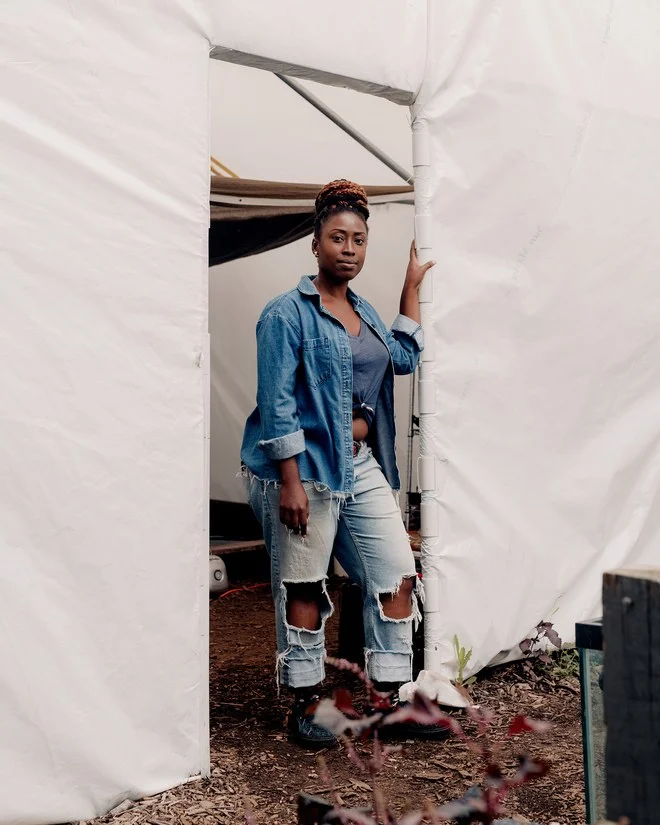Bushwick, Brooklyn's Oko Farms Brings Aquaponics And A School Of Fish To The People
/Nigerian-born Yemi Amu shares a look at Oko Farms, a Bushwick, Brooklyn aquaponics system housing both fish and plants with the same water source since 2013. Given that about 70 percent of freshwater is used for agriculture globally, Oko Farms is recycling at its best. Jen Maylack interviews the urban farmer for Vogue US.
When Amu first encountered the concept of aquaponics, she realized this technique, which uses fish waste to fertilize plants grown in water, and then in turn allows the plants to filter toxins from the water so it can safely be returned to fish, had massive potential. It’s a symbiotic system, relying on the relationship between fish, plants and microbes. “Nature is really efficient, and I fell in love with that efficiency,“ Amu says. “That source of locally raised sustainable protein, nobody is doing it.”
Seeking knowledge about her own eating disorder, the urban farmer began studying Ayurveda and its emphasis on holistic nutrition, supported by the idea that food is medicine. She then attended Teachers College, Columbia University for a Master’s Degree in Health and Nutrition Education. Soon came rooftop gardening and a passion that grabbed her being.
Inspired by the concept of aquaponics, Amu decided that she needed to pursue it as a living. Laughing, she adds, “I didn’t think, I needed to raise X amount of money. I didn't have a fancy business...all these things that you're taught to do, I didn’t do. I did it and then worked backwards. Okay, I need to build a farm. What does it take to build a farm?”
Amu and co-founder Jonathan Boe acquired land in Brooklyn from the city, creating an urban lore story that now brings her to Vogue.
The 2,500 square foot aquaponics system now houses a variety of freshwater animals, including catfish, tilapia, crawfish, freshwater prawns, gold fish, koi, and bluegill. The plants cultivated include rice, lemongrass, mint, okra, peppers, spinach, beans, garlic, chamomile, tomatoes, eggplant, and many more. Our system also features a number of aquaponic farming methods, including deep water culture, ebb and flow, and nutrient film technique.
“I’m my own investor, so I can do whatever I want,” Amu explains. Rather than focusing on large-scale food production, Oko Farms serves as an experimental field. Amu elaborates, “this is a space for me to fail, and use that failure to support people in being able to do this for themselves.” She now hosts workshops for school groups and visitors from around the world who are drawn to the farm within a busy Brooklyn neighborhood.
Expanded space and a larger farm is the new vision for Oko Farms. Another wonderful article about Oko Farms appeared in Edible Brooklyn.
